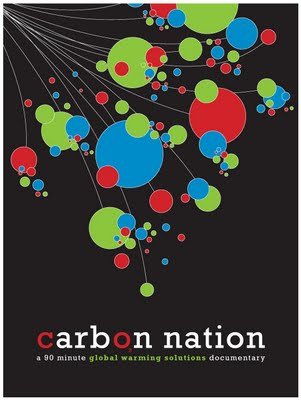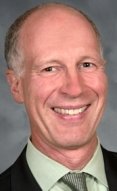The Chicago premiere of the much-lauded documentary film “Carbon Nation” is scheduled for Tuesday, Aug. 10, at 7 p.m. at the Jay Pritzker Pavilion in Millennium Park. The documentary is packed with interviews and profiles of people engaged in innovative business solutions to climate change.
While the film has garnered positive reviews at showings in other cities in recent months, Chicago claims bragging rights for home base to two of the five producers of the film. In addition, Chicago is responsible for a significant piece of the private and non-profit fundraising that helped bring the movie to life. The film was directed and produced by Peter Byck, whose first film, “Garbage,” won best documentary at the South by Southwest Film Festival.
The two Chicago-based producers are Craig Sieben, president of Sieben Energy Associates, an energy efficiency consultancy, and Karen Weigert, a senior vice-president at ShoreBank, the community lender based on the South Side. They worked on the film without pay and tapped their extensive contacts in the renewable energy and clean tech industries for sources for the film. Crain’s caught up with Mr. Sieben to discuss the making of “Carbon Nation” and what Chicago’s green entrepreneurs can learn from watching it.
Crain’s: How does an energy efficiency expert become a documentary film producer?
Craig Sieben
Sieben: I’m 30 years into my career I now believe the biggest issue facing the planet is climate change. Al Gore made the horror film defining the problem and I felt there needed to be a film about solutions. At the 2006 Sundance Film Festival I was introduced to Peter Byck, who wanted to make the same kind of film. He asked me to assist him because he was a filmmaker, but didn’t know the energy space — which I do. Along with Mr. Byck, Karen Weigert and venture capitalist Artemis Joukowsky, we created a team of different talents and perspectives that told uplifting and impactful stories. You don’t need to believe in climate change to be inspired by the stories of how this is an opportunity to rebuild America and create a low-carbon economy.
Crain’s: What types of companies and individuals are profiled in the film?
Seiben: Companies involved in energy efficiency and renewable, clean energy are among those featured. We show people who are expanding wind farm technology, building electric cars, retrofitting old commercial buildings by fixing their lighting and mechanical systems, and re-training workers to tighten up leaks in homes and install solar panels. Viewers will see that even the Department of Defense can be a catalyst to change by investing in its own buildings.
Crain’s: Are any Chicago-area companies or individuals highlighted in Carbon Nation? What made them stand out enough to be included?
Sieben: Exelon Corp. CEO John Rowe was included because he has positioned Exelon as a nuclear, low-carbon energy company. Rowe sees value in efficient resource use and he’s taking a public, proactive stand in favor of putting a price on carbon. Sadhu Johnston was also in the film. At the time we interviewed him, he was Mayor (Richard M.) Daley’s chief environmental officer and an inspiring leader to help move the city’s green agenda forward.
Crain’s: What do you hope viewers take away from this film?
Sieben: I hope students are inspired to make a career focusing on this area. For business leaders, it’s about being intentional with their business investments to minimize resource-use while growing their operations. Thinking about the carbon impact of their businesses and their practices is just plain smart.
Regardless of what the U.S. Congress does with climate change legislation, there’s a substantial amount that individuals and businesses can do to substantially reduce carbon dioxide emissions in America. I hope this film inspires people to see these opportunities and embrace them aggressively.
Crain’s: You’re a frequent speaker on energy efficiency and policy issues and you’ve just been appointed president of the board of directors for Leadership Greater Chicago. What opportunities do you see for Chicago-based entrepreneurs in the emerging green economy?
Sieben:It’s not easy to join the green economy. You’ve got to have compelling business propositions and you’ve got to be solving problems that matter to your customers. We’ve worked for 20 years to invent a whole new service area in energy efficiency for buildings, but there’s a lot of development potential in other new areas, such as building contractors doing comprehensive home energy retrofits, or even low-carbon grocery products and urban agriculture. The businesses that really get into it today will be the ones that thrive in the future.



